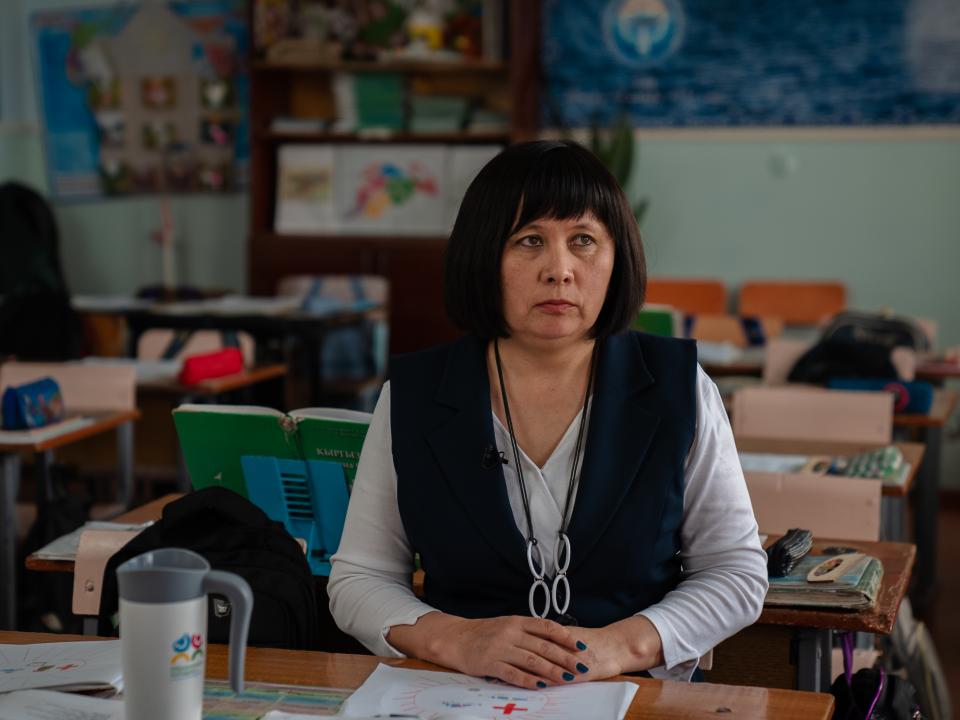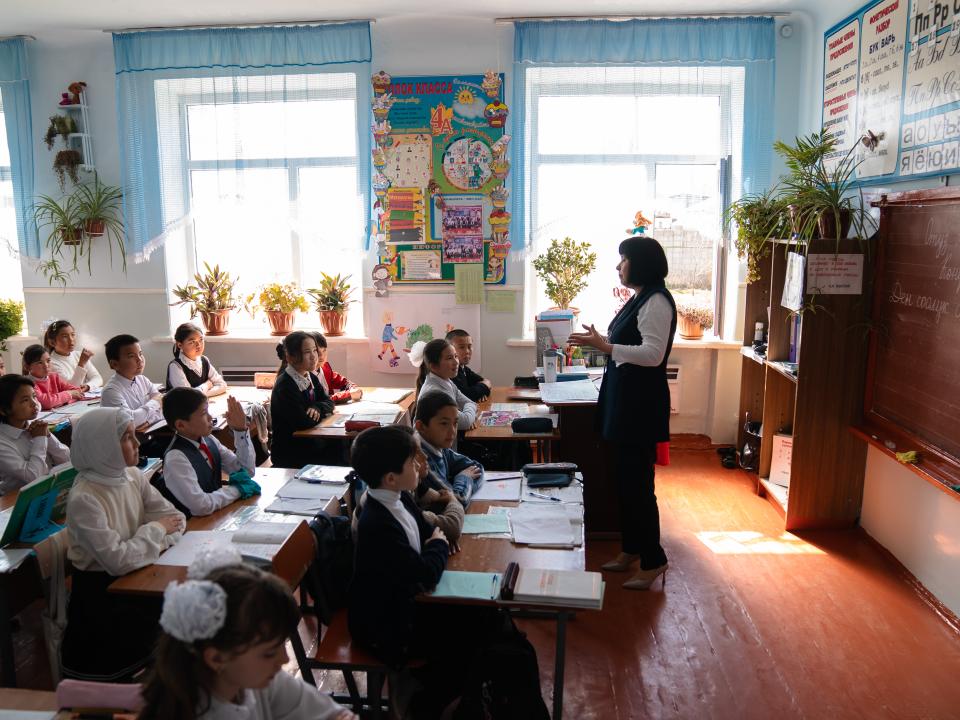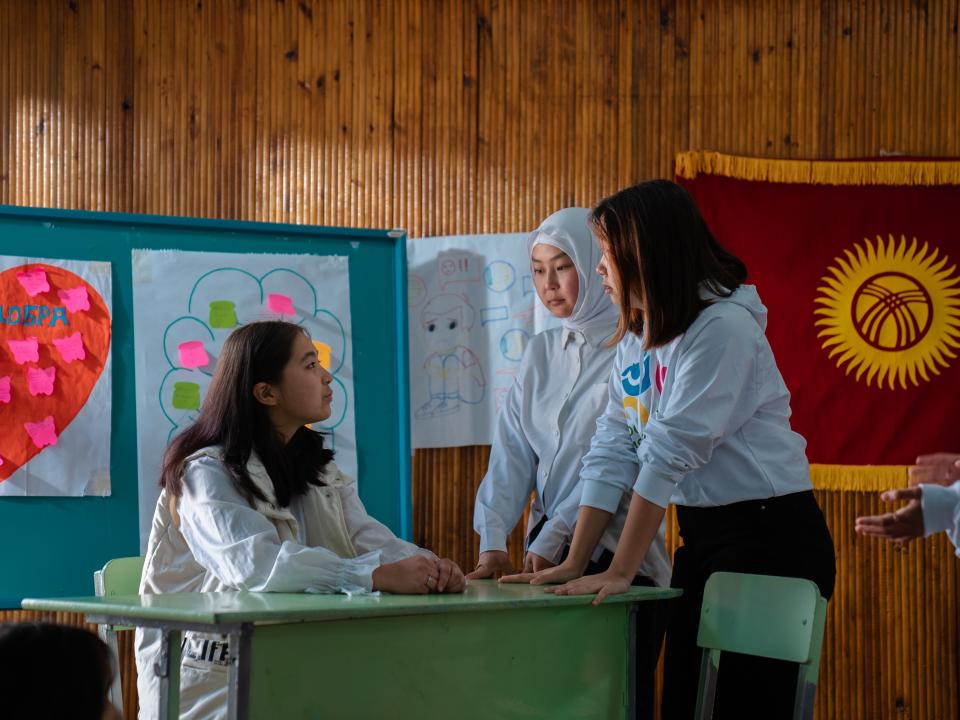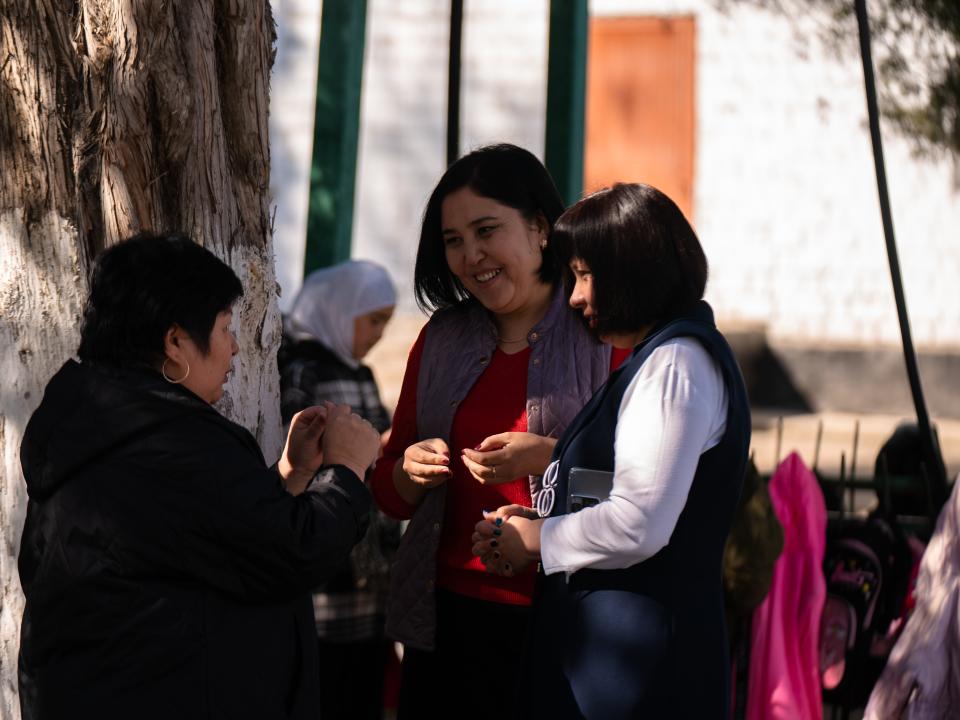In Kyrgyzstan, parents strive to educate their daughters
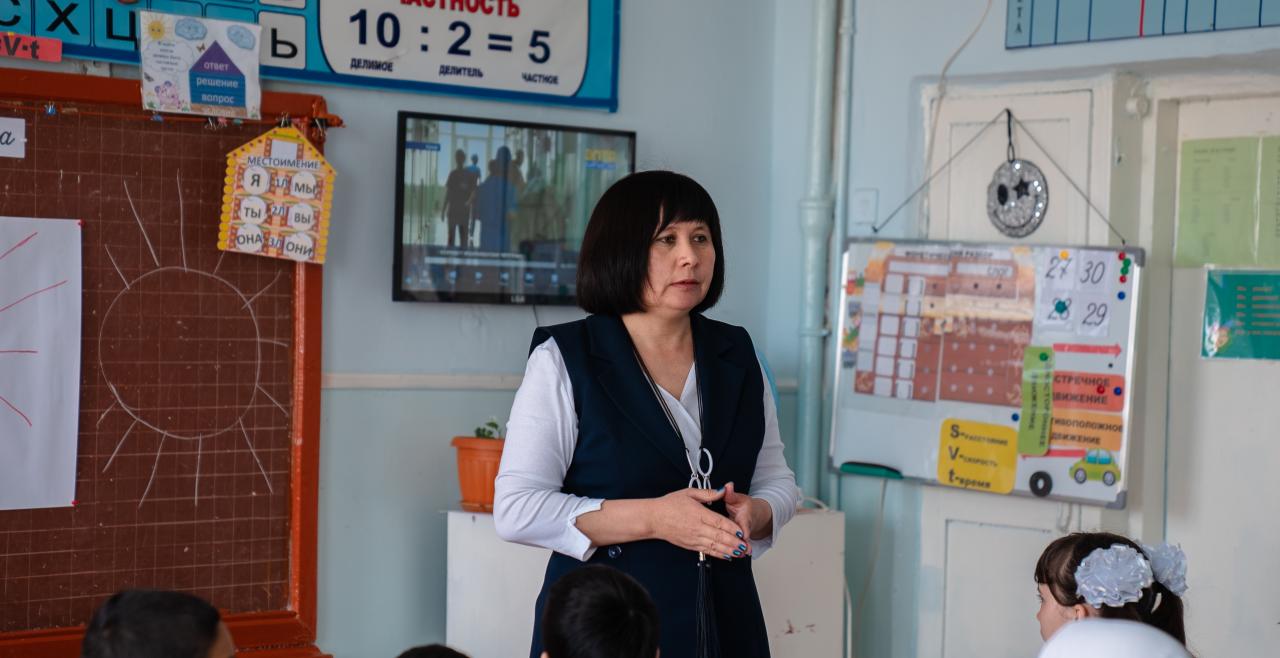
BISHKEK, Kyrgyzstan − Meerim Esengeldieva is a director of Secondary School 2 at the Vasilyevka village, in the north of Kyrgyzstan. She has been working in the field of education for 20 years: she was a social pedagogue, the head of the teaching department, and to this day she teaches the Kyrgyz language and literature.
Ms. Esengeldieva lives in the neighbouring village, Vinogradnoe. In this area, girls are usually prepared for marriage after the end of the ninth grade. But thanks to her work, more girls have become eager to continue their studies and pursue education after school.
In 2021, according to the National Committee of Kyrgyzstan, 13 per cent of women and girls entered into a formal or informal marriage before the age of 18. Every year, 7,000 - 9,000 girls get married and 500 of them become mothers between the ages of 13 and 17.
Ms. Esengeldieva started using a special methodology called Gender Action Learning System (GALS), which helps to improve the situation of girls and women. Using this methodology, she sought to address issues including child marriage, gender injustice, gender stereotypes and lack of motivation in education. She also taught this to her colleagues and parents, so that they could improve their lives and the living conditions of their children.
“My student Mustafa's father died a few years ago. His mother began to raise her daughters alone. Mustafa and his mother took part in GALS training to increase sensitivity to the needs of girls and women. Now, they consider it important to educate girls. “I will not have my little sister get married. She will be educated and she will have a vocational education,” says Mustafa.
This kind of thinking has become more common in conversations among parents and families, leading to more and more girls in high school.
Students learned to assess their own situations, set goals, identify problems and find solutions.
“Modern education is about ensuring every student has the same attitude, and listening to their opinions. Meerim Zhumakadyrovna knows how to openly communicate with girls, which she taught us. She always tells us to be leaders and believe in ourselves”, shares Malika Muratova, a ninth-grade student and participant in Ms. Esengeldieva's training
The teacher retraining programme now includes gender training. All teaching and learning materials go through a mandatory gender review.
Ms. Esengeldieva applied her knowledge to her family. They analyzed household duties with her husband and daughters and changed the distribution of tasks around the house, so that the girls would have more time to prepare for their final examinations.
Most importantly for Meerim, many fathers and mothers in her village have changed their attitudes towards their daughters. They have realized that they need to listen and create every opportunity for girls to get an education.
This story was prepared by UNICEF in Kyrgyzstan as part of the European Union and the United Nations joint Spotlight Initiative to end gender-based violence against women and girls in Kyrgyzstan.
By Aidai Kadyralieva

